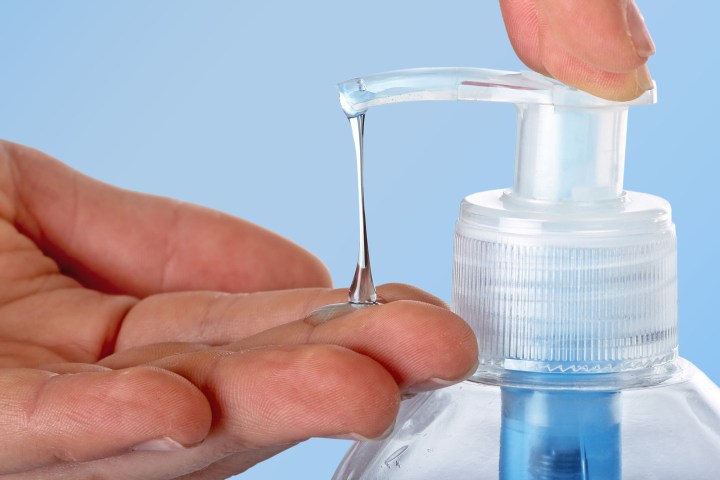
An antimicrobial is any agent that kills or inhibits the growth of microorganisms like bacteria. That’s why the federal government considers them a pesticide, though they are more commonly known for their inclusion in hand soaps and in products like door handles and light switches, which manufacturers claim can help prevent the spread of infectious diseases.
However, as the report by Perkins+Will and the Healthy Building Network explains (via Fastcodesign), there’s no real evidence to suggest these products actually have much of an effect on improving the health of populations. Typically, the products only prevent the buildup of bacteria and other microbes on the products themselves and don’t do much to limit the spread of bacteria on other surfaces.
One effect antimicrobials can have though, the report claims, is to contribute to antibiotic resistance, which is where the so-called “superbugs” come from. There is also some suggestion that some antimicrobial agents could have a negative impact on human health, such as by disrupting hormone function.
If they end up in the water supply, some agents have also been found responsible for mutating and killing fish embryos and can even move up the food chain because they are fat soluble.
This is why the report and the organizations behind it are now suggesting that buildings no longer incorporate products claiming to have an antimicrobial function, asserting that at best they don’t do much to stem the spread of bacteria and other microbes. At worse, they may have ongoing negative effects of their own.
However, not everyone agrees with this report. Following the publication of our original article on March 7, Digital Trends was contacted by the American Chemistry Council’s Biocides Panel (ACCBP), which represents more than 50 companies in the business of manufacturing and distributing antimicrobial agents. The ACCBP believes that the Perkins+Will report is incomplete and doesn’t touch on some of other benefits of antimicrobial ingredients.
“While this report primarily discusses the use of antimicrobials to protect public health and safety, most antimicrobials used in building materials act as key material preservatives,” said Komal Jain, the AACBP’s executive director. “For example, they ensure low-VOC paint doesn’t require refrigeration, and they extend the life of materials such as wood and drywall.”
This, she said, helps make construction projects much more sustainable and environmentally friendly. However, the ACCBP also contested claims that antimicrobials can aid the creation of “superbugs” suggesting that they are based on: “cherry-picked statements by the U.S. Food and Drug Administration and Centers for Disease Control and Prevention on a narrow set of antimicrobials in particular uses, which are far from representative of antimicrobials used in building materials.”
She also reiterated that antimicrobials are a heavily regulated industry, with all products seeking evaluation and approval by the U.S. Environmental Protection Agency before going on sale.
Updated on 03-23-2017 by Jon Martindale: Added response from the ACCBP.
Editors' Recommendations
- Saturn’s moon Titan may be more Earth-like than we thought
- Google’s completed Fitbit acquisition may help Wear OS more than Fitbit
- The Xbox Series X’s price may be more expensive than past generations
- Zuckerberg may have known more about Facebook’s privacy scandal than we thought




